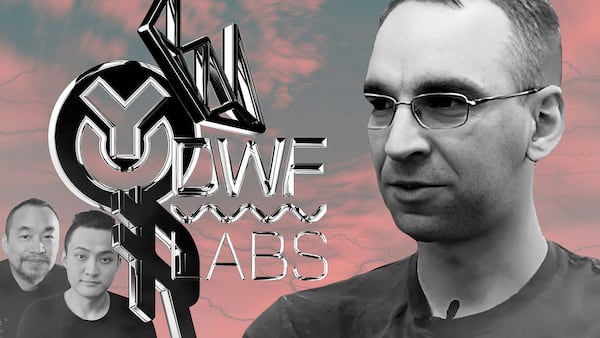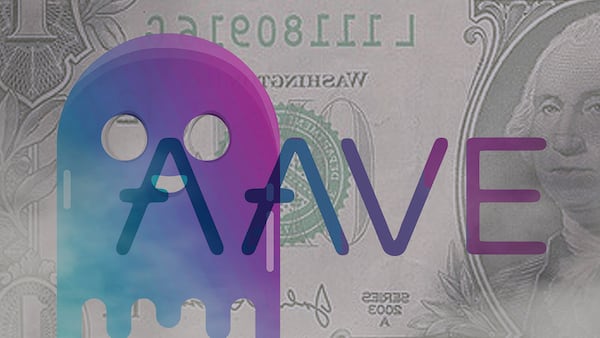- Wintermute founder and CEO Evgeny Gaevoy rebuts recent market manipulation accusations.
- Gaevoy says Yearn Finance proposal which sparked controversy is a "win-win" for both parties.
- “We definitely don’t want people to see us in the same way they see Alameda or Three Arrows,” Gaevoy said.
Wintermute, a leading market-making firm, now finds itself at the epicentre of accusations and public scrutiny after a recent controversial proposal to DeFi protocol Yearn Finance.
On August 14, Wintermute posted a proposal to Yearn Finance’s governance forum.
The offer was simple: Wintermute would deposit CRV tokens to Yearn, a move it said would inject liquidity and make the protocol more attractive to other investors. In return, Wintermute requested an unbacked loan of 350 of Yearn’s YFI tokens, worth around $2.1 million, to use in its market-making activities.
Wintermute’s recent overture to Yearn Finance — offering liquidity in exchange for a sizeable uncollateralised loan — not only ignited fierce debates across the industry but also brought to the forefront lingering concerns associated with market making, including alleged market manipulation, the transparency of market-making operations, and the overall integrity of crypto trading practices.
“It’s flattering I guess,” Wintermute CEO Evgeny Gaevoy told DL News when asked what he thought about people accusing him and his firm of being able to manipulate markets.
“People just have this pre-existing perception of market makers as the blind zone guys who go out and manipulate the markets,” he said.
“I’m trying to educate people about it, but ultimately, some people will be receptive to it. Some people won’t, and it’s fine.”
Market makers are trading firms that post offers to buy and sell specific assets at the same time. Their goal is to provide liquidity, making it easier for investors to buy and sell large amounts of a given asset.
Market-making firms like Wintermute usually make money by arbitraging the small difference between what investors are willing to buy and sell an asset for at any given moment. Because of this, they hedge their positions — for example, by using bots to buy an asset on one exchange as it’s sold on another — so they don’t lose money if the price of the asset they’re making a market for increases or decreases.
Wintermute is the top market maker in crypto, with a cumulative trading volume of over $3.3 trillion, according to the company’s website. Other prominent crypto market makers include GSR, Jump Trading, and Bluesky Capital.
The Yearn proposal
Gaevoy said that the deal Wintermute proposed to Yearn is a “win-win” for both parties.
“There is clearly this chicken and egg problem at Yearn,” Gaevoy said. “People don’t deploy [capital] because Yearn’s CRV pool is illiquid, and the pool is illiquid because people don’t deploy [capital].”
Wintermute’s proposal would deposit three million CRV tokens into Yearn’s CRV pool, boosting its liquidity and, as Gaevoy explained, encouraging other large market players to deposit to the pool as well.
But in return, Wintermute is asking for a 12 month loan of 350 of Yearn’s YFI tokens, paying just 0.1% interest. While many of the proposal’s critics felt the 0.1% rate was low, for market makers, such terms are normal.
Gaevoy explained that the 0.1% rate was merely for “legal and accounting” reasons, and should effectively be treated as 0%. He said Wintermute normally receives interest-free token loans for market-making purposes, or uses a call option structure where it has the option to buy tokens at the end of the loan at a pre-specified price.
He added that Wintermute needed the low interest rate because it might not have the opportunity to use the 350 YFI token loan for market making.
“0% effectively ensures that we have the optionality to use them and it doesn’t really cost us anything to hold them on the books,” he said.
But detractors maintain the deal puts Yearn at the mercy of Wintermute, because it gives the firm enough YFI tokens to move the market with little recourse.
‘We definitely don’t want people to see us in the same way they see Alameda or Three Arrows’
The Yearn debacle highlights wider concerns around Wintermute and crypto market makers in general.
In June, a class-action lawsuit against defunct crypto lender Celsius alleged that Wintermute helped prop up the value of Celsius’ CEL token through its market making activities. It specifically accused the firm of wash trading — simultaneously buying and selling the same asset to create a false impression of market activity.
“The term ‘market making’ however, is abused in the crypto industry with the phrase used very generally to describe all manners of complicated trading activities, including wash trading, that work to harm investors,” the lawsuit said.
Wintermute has denied these allegations.
NOW READ: Quantstamp launches flash loan attack vector detector for DeFi protocols
Suspicions of shady activity from crypto market makers and trading firms aren’t new.
For years, crypto traders had suspected that Alameda Research, the trading firm founded by Sam Bankman-Fried, was manipulating crypto prices on his FTX exchange. Despite these concerns, Bankman-Fried continually denied such allegations.
But last November, those suspicions were proven right when Bankman-Fried’s empire collapsed, revealing a $9 billion hole in FTX’s balance sheet. Subsequent investigations showed Alameda Research had racked up debt by trading with FTX customer’s funds. Commodity Futures Trading Commission court filings also highlighted that Alameda had “unfair” trading advantages on the FTX exchange.
Gaevoy suggested that Wintermute is attracting more scrutiny now that Alameda Research and other disgraced trading firms like Three Arrows Capital are gone.
“In this power vacuum I guess it’s natural for people to see who’s left — and we are very publicly left,” he said. “We definitely don’t want people to see us in the same way they see Alameda or Three Arrows.”
But from the outside, the activities of market makers like Wintermute are opaque.
The firm receives large sums of tokens from projects or DeFi protocols who want the firm to provide market making services for them. However, how exactly Wintermute deploys these tokens is kept secret.
This has led some in the crypto space to accuse Wintermute of manipulating the prices of tokens it makes markets for.
NOW READ: Coinbase-funded lawsuit against Tornado Cash sanctions was ‘nigh impossible to win’
Gaevoy said that Wintermute uses token loans to provide liquidity across DeFi, but that most of the loaned tokens go to centralised exchanges, such as Binance, Kraken or Coinbase.
“Without those loans, we wouldn’t be able to show really good bids and really good offers to the market,” Gaevoy said. “One of the misconceptions this creates is that because we show really good bids to people, some people tend to think that we are pumping the market up. Other people see there are so many offers showing and they think we’re dumping the price.”
“All we’re trying to do is show bids and offers on screen, which is basically our core business. And that’s all there is, basically,” Gaevoy said.
Finding a compromise
In response to the backlash over its proposal to Yearn Finance, Wintermute has made amendments to its offer.
The firm will now hold the CRV tokens that it plans to stake with Yearn in a multisignature wallet that requires at least one Yearn team member’s approval to execute transactions. It said this should help offset the risk associated with its requested uncollateralised YFI token loan.
The firm also proposed extending the duration it will stake its CRV tokens at Yearn to 12 months, matching the YFI token loan duration. It also added the option to cut the loan short and receive its CRV back after six months.
NOW READ: Curve founder’s bailout buyers almost underwater on 158m CRV purchase
“We also want to reiterate that the loaned YFI will be used solely for our delta-neutral trading, we have no intent to sell it, and it will not be used in the YFI tokenomics ecosystem,” Wintermute team member Callen Van Den Elst said in the original proposal thread while explaining the amendments.
Whether the Yearn community will be more receptive to Wintermute’s revised proposal remains to be seen.



